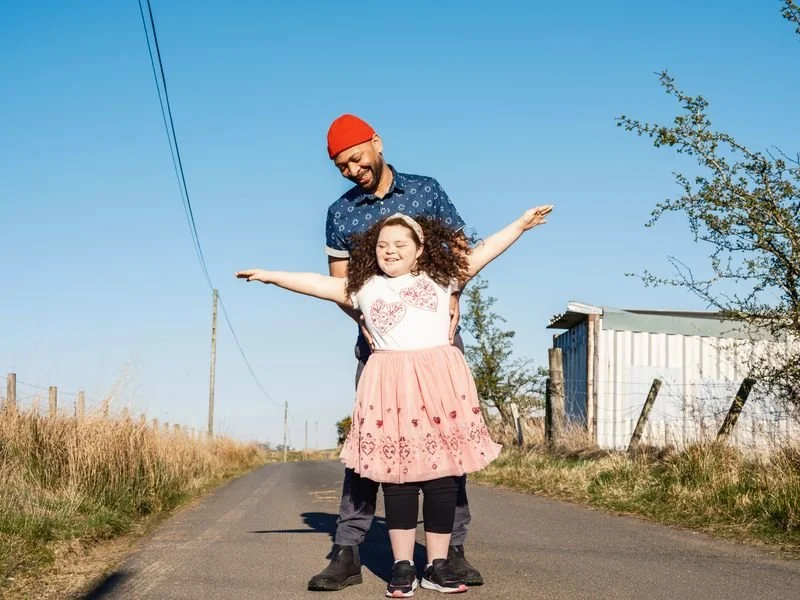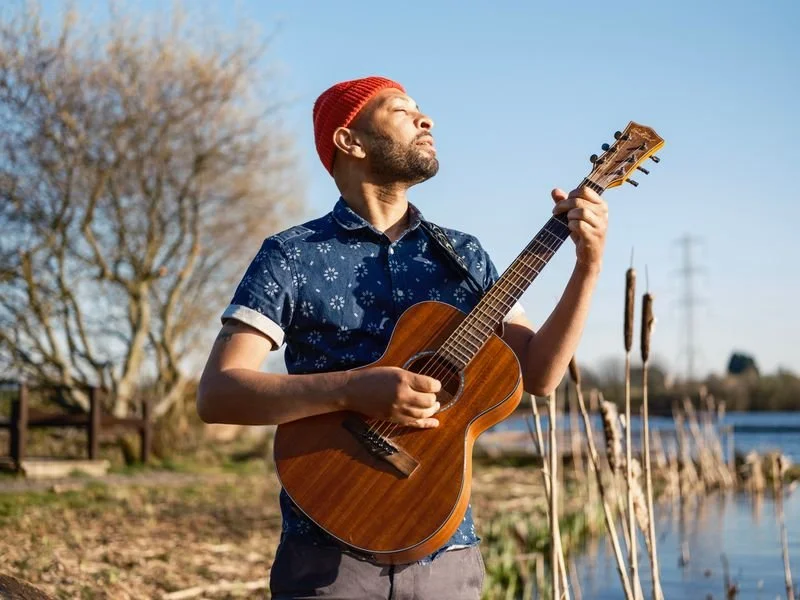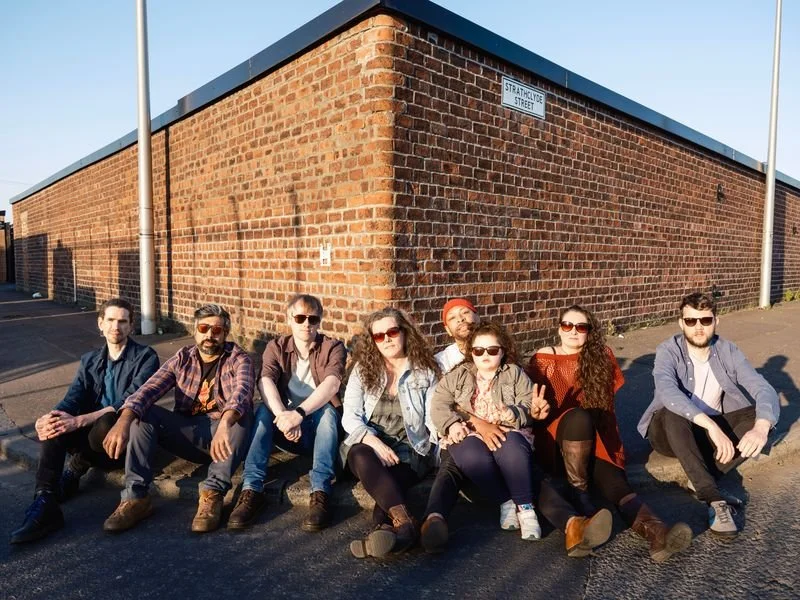Roots and Resonance: Ant Thomaz on Fatherhood, Fusion, and Finding Purpose
Some artists follow trends; others follow truth. In a world that often demands instant output and polished perfection, Ant Thomaz chooses presence, patience, and purpose. From morning meditations with his daughter to the chilled edges of the Irish Sea, his creative process is as deeply personal as it is universal. Rooted in Scotland but echoing with Louisiana soul, Ant’s story unfolds like a song—layered, honest, and impossible to ignore. Want to know what fuels the man behind the music? Read below to find out more.
Where are you based?
Glasgow
What inspired you to get into music?
My Uncle inspired me to get into music.
Your songs, especially “Believe” and those on 520, are rich with storytelling. What’s your songwriting process like, from initial idea to final lyric?
“Believe” comes from my personal experiences. It is influenced by my daily roles as a father, husband, friend, and artist. My daughter created the melody by teaching me a song in Scottish Gaelic, and the words just came naturally. The 520 album is about resilience and self-discovery. It highlights the importance of handling life’s challenges while keeping a hopeful outlook. Life is wonderful when you decide to see it that way.
Your music fuses folk, soul, pop, zydeco, rock, and more. How do you go about blending such a wide variety of genres without losing cohesion?
Meditation helped me. Not feeling pressured by the word genre also supported me. I grew up listening to fusion music like zydeco, jazz, and Celtic folk rock. I honestly don’t think I can be a traditional songwriter. It’s more interesting to find a way to express yourself in fusion music.
Your music carries a strong Louisiana spirit, but is rooted in Scotland now. How does location affect the sound and soul of your work?
My wife is Irish and was born in Scotland. We fell in love because we realized that Scottish, Irish, and Louisiana music are all similar. This music is made by everyday people. It is not fancy, but it is absolutely beautiful and simple so everyone can relate.
Your EP 520 introduced a deeply emotional, soulful sound. In what ways does your upcoming album GAIA build or depart from that?
The method for the Gaia album was unique; I decided to take my time to experience life and return with a fresh sound. I noticed my growth as a songwriter, musician, singer, father, husband, friend, and person, but I struggled to find the right words to convey it. This is why I chose “Believe” to kick off the story, as I felt uninspired at that moment from performing at the same festivals and venues every year. I needed a break from music since everything felt repetitive, and I observed that many artists, even the big names, were just going through the motions. However, I required a purpose for being an artist, as that’s what originally made me fall in love with it. I found inspiration in spending time with my family, reconnecting with friends and joking about silly things, watching shows about lorry—I know it’s random—walking in nature, enjoying karaoke with my daughter during a caravan trip, dancing awkwardly, falling down and getting back up, and jumping into the chilly Irish sea. Just living life helped me return to music.
“Believe” started as a series of reflections with your daughter. How do you know when a personal story is meant to become a song? You cannot always recognize when the timing is perfect.
She motivated me to chase my love for art during a time when I felt uncreative, and she sparked my imagination again by reminding me of the younger version of myself with bright eyes and carefree wonder. She essentially said, Dad, why aren’t you creating? Let’s go; I can show you how, just like you taught me. Remember?
You mentioned that the song started as “shared meditations and short stories” with Gaia. How did those moments evolve into music? Was she part of that creative process beyond inspiration?
Yes, we meditate every morning for a little balance during the day. My daughter has been studying Scottish Gaelic for five years, and she was teaching me how to do it. Then, she started teaching me simple phrases that turned into nursery rhymes with the line, “I am starting to believe.”
How has fatherhood changed the way you write music or the kinds of messages you want to share? Does your daughter help you write?
It makes me more aware that words affect people’s lives, so I believe in having a message. I don’t want to do things just for entertainment. My daughter helps me write, and if she doesn’t come into the room while I am creating a song, it tells me that the song isn’t good.
There’s something incredibly vulnerable in writing songs from a father’s perspective. Did becoming a parent unlock emotional places in you that you hadn’t explored musically before?
Yes, you just can’t predict how you are going to feel. Sometimes it is great because you feel more present.
Do you view GAIA (the album) as a kind of time capsule for your daughter, something she can return to as she grows older?
Yes, it’s more than just a song; it’s more like a diary for us. It’s something we can look back on and say we did it together.
Do you share your finished songs with Gaia before anyone else? What’s her reaction when she hears herself reflected in your music?
Yes, I share with her and my wife. They are very honest, so I probably have ten different versions of each song.
If Gaia were to become an artist or songwriter one day, what’s one piece of advice you’d want her to carry into her creative life?
Always maintain a balance, and do what you love in art, not for fame.
DOPESICKFLY felt like a creative explosion, funk, rock, soul, and jazz all colliding. When you look back, do you see that band as a launchpad, a lab, or something else entirely?
It’s definitely where I began my music career, so yes, it feels like a launchpad. I love being in DSF because I get to be with great friends. We have fun, share unique ideas, and do what we love—music. We all have different tastes in music, and our goal was to come together as a band while keeping it authentic.
The chemistry in DOPESICKFLY was electric on stage. What did that experience teach you about musical communication without saying a word?
We just zone out and don’t think too much. This is our time to relax and be carefree. Each of us has other things outside of DSF, but when we gather, we understand this is our night to do what we love. We know each other so well on stage that we can communicate without words. It’s magical, and I never take it for granted.
Rejoining Union of Knives after years apart must have been a full circle moment. What was it like stepping into that sound world with fresh ears, and a changed life?
It’s great that we’re like brothers. When we do UofK, it’s like therapy. There’s no filter, so you can just be yourself and not worry about traditional structures like choruses or bridges. We mainly record in the winter, so everyone is moody, lol. We feel extremely happy afterward because we can let go.
Union of Knives has a cinematic, darker energy than your solo work. How do you shift gears creatively between light and shadow in your music?
We think of recording as if we will never release an album, and I believe this mindset allows us to express ourselves without holding back, as I mentioned before. Usually, we make recordings during the chilly winter season in Scotland when it’s really cold and gets dark by around 5 PM. I believe this also influences how we feel. Honestly, we have a great time because experimenting with different sounds is fun. We can also take on the role of producers, composers, songwriter and it’ more like making a movie compared to just sitting and playing a guitar. We get rid of the limits on what instruments we use, the tones we create, and traditional song structures. We both agree that when an artist keeps repeating the same thing, it loses its excitement. Moving between light and dark and then back to light again is related to meditation, which helps us stay balanced and understand ourselves more. Everyone has moods; it’s just part of being human. As artists, we can connect to and show real feelings through our work. I’m really looking forward to creating UofK albums and performing; it can be tough to let go as an artist, so being part of a band that focuses on soundscapes and dramatic elements is truly amazing.
You’ve dedicated time supporting Refuweegee since its founding in 2001. What drew you to this Glasgow-based refugee charity, and how did you first become involved?
Selina, the founder, is a close friend of both my wife and me. She exhibits complete commitment, and we truly appreciate her enthusiasm for this remarkable initiative that everyone deserves to be treated with fairness.
Refuweegee’s volunteer-driven “welcome packs” and community led free shop model have transformed many newcomer’s experiences in Glasgow. Could you share a story or moment from your work there that had a profound impact on you?
Just seeing people smiles. Just to know someone cares its such a beautiful priceless moment. That wee bit hope can change someone’s life for the better its absolutely beautiful.
You’ve also supported Marie Curie and Pancreatic Cancer UK. What motivates you to work across such varied causes, and how do these roles interact with your life as an artist and father?
We organized an event for Kevin in Livingston to raise funds for someone close to him. She was a lovely lady who loved music and was always joyful. The event was a huge success, but sadly she passed away a year later. I wanted to be more involved because meeting and knowing someone who has experienced it makes you realize that it is a real issue. So, Kevin and I organized the event many times to raise more awareness and funds to help.
Pancreatic cancer: My wife is a film and theater actor. She was in a play about this topic, which told a magical story about a family that had to cope with losing a loved one. The person who passed away was the husband of the scriptwriter and director. I learned so much about pancreatic cancer and how many people have been affected by it. To sum it up, I support the charities because of the incredible people involved. As an artist and father, this helps me stay present, be a better listener, and appreciate life. It is absolutely wonderful when you realize what you have right in front of you.
Navigating the realities of serious illnesses through charities can be deeply humbling. Has your experience with these organizations influenced the emotional tone or themes in your songwriting?
Yes write a how beautiful life is it a gift to be alive in good health We shouldn’t take it for grant or complain about rain on a sunny day!
It has been a crazy past few years, and we suspect at least four more. How have you been staying positive?
Meditation and having a honest and strong wife and daughter. lol!
What is your motto in life?
There’s so much beauty in the world, we forget and get reminded. You can be anywhere and find it.
To learn more about Ant and his work, visit the link below:
https://linktr.ee/antthomaz1, Instagram






